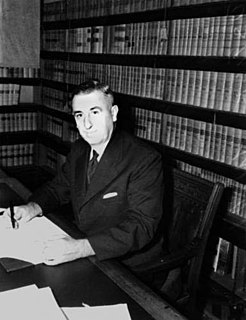A Quote by Johan Huizinga
Quite apart from any conscious program, the great cultural historians have always been historical morphologists: seekers after theforms of life, thought, custom, knowledge, art.
Related Quotes
Most academic historians accept that historians' own circumstances demand that they tell the story in a particular way, of course. While people wring their hands about 'revisionist' historians; on some level, the correction and amplification of various parts of the past is not 'revisionism' as it is simply the process of any historical writing.
It is easy to see, though it scarcely needs to be pointed out, since it is involved in the fact that Reason is set aside, that faith is not a form of knowledge; for all knowledge is either a knowledge of the eternal, excluding the temporal and historical as indifferent, or it is pure historical knowledge. No knowledge can have for its object the absurdity that the eternal is the historical.
The ordinary politician has a very low estimate of human nature. In his daily life he comes into contact chiefly with persons who want to get something or to avoid something. Beyond this circle of seekers after privileges, individuals and organized minorities, he is aware of a large unorganized, indifferent mass of citizens who ask nothing in particular and rarely complain. The politician comes after a while to think that the art of politics is to satisfy the seekers after favors and to mollify the inchoate mass with noble sentiments and patriotic phrases.
I think you too recognize the important relationship between philosophy and art, and it is just this relationship that most painters deny. The great masters do grasp it, unconsciously; but I believe that a painter's conscious spiritual knowledge will have a much greater influence upon his art, and that it would be due only to a weakness in him, or lack of genius, should this spiritual knowledge be harmful to his art.
The notion that "applied" knowledge is somehow less worthy than "pure" knowledge, was natural to a society in which all useful work was performed by slaves and serfs, and in which industry was controlled by the models set by custom rather than by intelligence. Science, or the highest knowing, was then identified with pure theorizing, apart from all application in the uses of life; and knowledge relating to useful arts suffered the stigma attaching to the classes who engaged in them.
If we define 'thought collective' as a community of persons mutually exchanging ideas or maintaining intellectual interaction, we will find by implication that it also provides the special 'carrier' for the historical development of any field of thought, as well as for the given stock of knowledge and level of culture. This we have designated thought style.
Most historians accept that Egypt was a cradle of civilization, and that many cultural idioms and traditions come from there. What has yet to be understood, however, is the manner in which Egypt inherited its cultural elements from the lands of the North-West. This fact is not known today because of the threat it poses to Rome and London, the Vatican and Crown, and to all those who have profited from the suppression of knowledge.
Cultural concepts are one of the most fascinating things about historical fiction. There's always a temptation, I think, among some historical writers to shade things toward the modern point of view. You know, they won't show someone doing something that would have been perfectly normal for the time but that is considered reprehensible today.








































